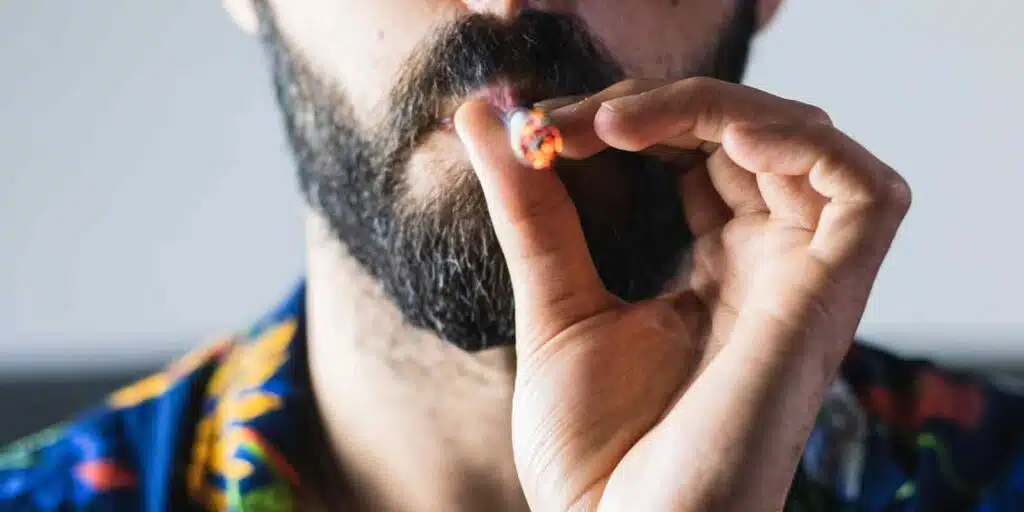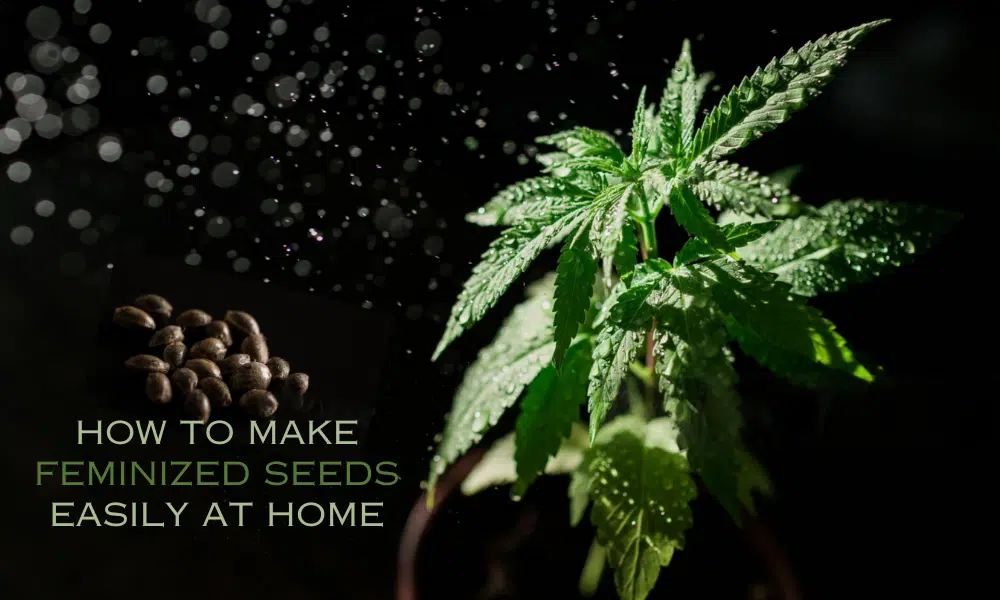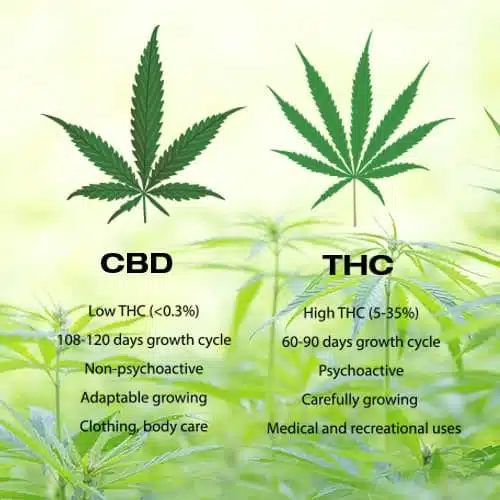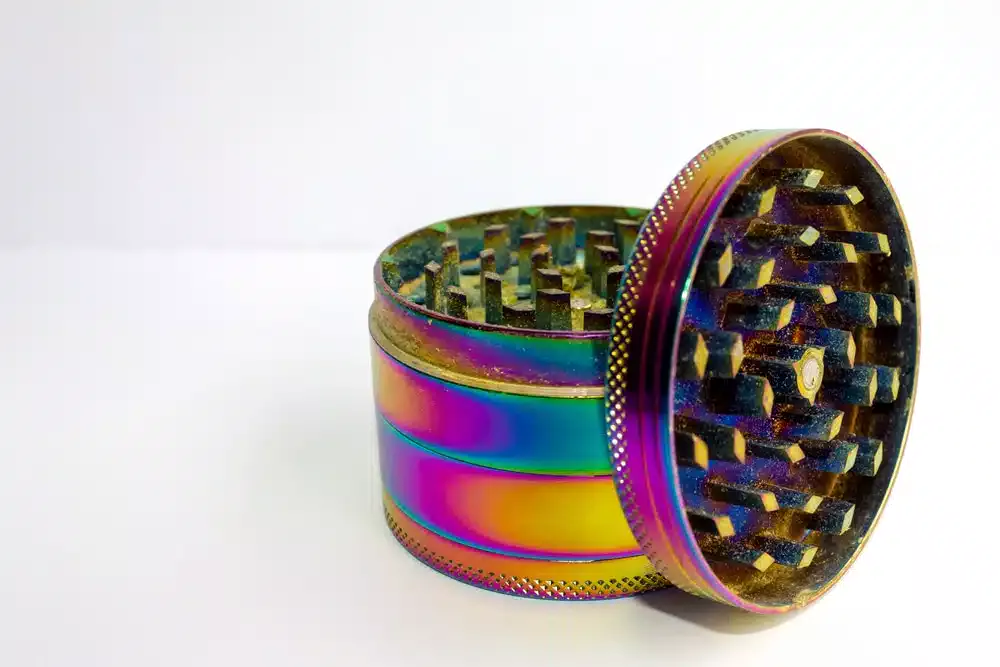Weed Hangovers: What are they and how can you best avoid them?
If you’ve ever experienced a weed hangover, you know the unpleasant symptoms can leave you feeling drained and foggy.
Unlike alcohol hangovers, the effects of marijuana hangovers can vary from person to person.
In this article, we’ll explore the science behind weed hangovers and provide helpful tips for managing the symptoms.
Have there been studies done on weed hangovers?
Research suggests that many weed hangovers are caused by overconsumption. Most of the studies have been anecdotal, however, a substantial article published back in 1985 indicated that you can indeed get a hangover from consuming marijuana.
Another study was completed in 1998, unfortunately, it was a smaller sample size as well and isn’t reliable in terms of a good-sized sampling. The information garnered from that study showed that the residual effects from consuming cannabis were insubstantial.
The interesting note from both of these studies is that they only used a single joint in each instance.
The nature of whether or not you can get a hangover from weed seems to stem from the person themselves. THC and other cannabinoids interact with our system through the endocannabinoid system.
Each person has different tolerance levels and can explain why some cannabis consumers are adamant it exists while others have never experienced any issues.
Does consuming marijuana lead to dehydration?
Cannabis itself has not led to any noticeable dehydration for marijuana users. It is important to mention that the dry mouth associated with dehydration is a result of a lack of saliva production. Also known as cottonmouth, it’s a common symptom of the THC binding to your submandibular glands, temporarily reducing saliva production.
This was confirmed in another study conducted in 2006 and is not the same as dehydration.
Smoking in general is taxing on the body and you should drink lots of water to keep yourself hydrated. Many of the cannabis hangover symptoms are similar to that of dehydration.
Can you get a hangover from edibles?
Some people claim they can get a weed hangover from consuming high-potency edibles. Traditionally, smoking cannabis gets the THC into your bloodstream quickly where it only lingers for a short time. In the case of edibles, there is a slow release which can last several hours longer than smoking weed.
While you may feel hungover when you wake up the following day, you could in fact still be feeling the residual effects of the THC in your system. Think of it like a watered-down version of the original high from the edible.
What is the cause of weed hangovers?
Anecdotal reports cite the most common cause of a weed hangover as a result of overconsumption. The research is inconclusive since it really depends on the strain, method of consumption, and tolerance level of the individual. However, most people who report a cannabis hangover claim it was from too much use.
Weed hangovers may be more persistent with frequent usage. High consumption of cannabis has been linked to other symptoms that could be detrimental over the long term. THC has been known to stay in your system for several weeks and up to a year in your hair.
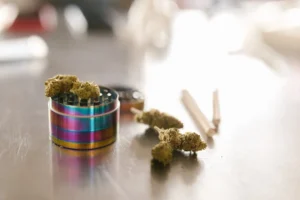
Weed hangover vs. alcohol hangover
The most common comparison for a weed hangover would be one resulting from alcohol. This is a bit of a stretch since the symptoms of a traditional hangover are prominent and potentially harmful to your body. The symptoms of alcohol hangovers include:
- Nausea and vomiting
- Headaches and migraines
- Dehydration
- Insomnia
- Body aches
Alcohol doesn’t have the synergy that weed has with our body chemistry and thus, will affect us differently. The symptoms of a weed hangover are generally mild without any need for extended downtime, while alcohol hangovers can be debilitating and long-lasting.
Symptoms of a weed hangover
Weed hangovers are generally nothing to worry about and will clear up within a day. The studies that have looked into the symptoms did not account for a lot of what is experienced so this is all from consumers and their own research.
Brain fog – This is commonly reported from both smoking marijuana and consuming edibles. Users claim a slow reaction speed to thought processes, primarily around decision-making and behavioral tasks. Severe cases report a groggy and sluggish feeling that can make it hard to get the day going.
Mild headaches – You’ll often hear people saying to drink more water if you have a weed headache. Unofficially, weed headaches have been attributed to dehydration.
An alternative theory is that the influx of cannabinoids into your system floods the receptors which can cause an imbalance in the form of a headache. Again, these are all speculation and not grounded in results-based science.
Mild nausea – Nausea is quite uncommon as a symptom but people have experienced it during the morning after “greening out”. If you’re a heavy smoker, then a lack of water can cause nausea. This may be further amplified if you drink something like coffee in the morning, which can dehydrate you.
Dry eyes – Cannabis use causes dilation in the capillaries found in your eyes. This is what most people refer to as the “red eyes” when you get high. It is also the common cause of dry eyes or the itching feeling you can get.

How to prevent marijuana hangovers?
Often the best medicine is a preventative one and luckily, the same applies to a weed hangover. With various mild symptoms, it can be easy to prepare for the next day.
Limit your consumption – If you are trying out a new cannabis product and are unsure of how much to take, it is best to keep it low and go slow. This means you should take a small amount and wait about 30 minutes to see what the effects are on your system.
For edibles, you should wait up to an hour to be safe, as the effect can be compounded.
Keep up on the hydration – Often a lot of these symptoms can be traced back to not drinking enough water. Keep a water bottle handy and try to stay away from things like coffee and alcohol.
Watch what you eat – The munchies are a real phenomenon and often lead to questionably delicious food choices. If you’re able to maintain some control, then be sure to make choices that you would normally make. Any deviation in your diet could cause problems the next day.
What type of cannabis does not cause a hangover?
Depending on the potency and strain, hangover symptoms may happen as long as there is THC present.
The only cannabinoid that has been reported not to give headaches is CBD. CBD is used as a therapy for many ailments and it lacks the psychoactive properties of THC. This isn’t to say that consuming too much CBD won’t cause a hangover; it’s just that studies have not confirmed it yet.
How to get rid of a weed hangover
Sometimes marijuana hangover symptoms can’t be avoided and you’ll need a game plan for those mornings. Here are some easy tips for when you’re not feeling well.
Get plenty of rest
Having a slow day will benefit the recovery process for weed hangovers. The best way would be to hang out in bed or on the couch, pop in your favorite movie, and just let your body rest.
Additionally, a shower will help push away any brain fog you might be experiencing. An alternating hot and cool shower can rejuvenate your body.
Eat and drink
Eating a balanced breakfast will replenish anything you expended the night before. This includes things like eggs, meats, veggies, and fresh fruits.
If you’re feeling nauseous or have an upset stomach, then having some ginger or chamomile tea might help ease those symptoms.
Try CBD
Some people use oral CBD products to help counteract the effects of weed hangovers. Have questions about CBD or where you can purchase some seeds? Check out our collection of high CBD cannabis seeds and stock up for your next garden!

